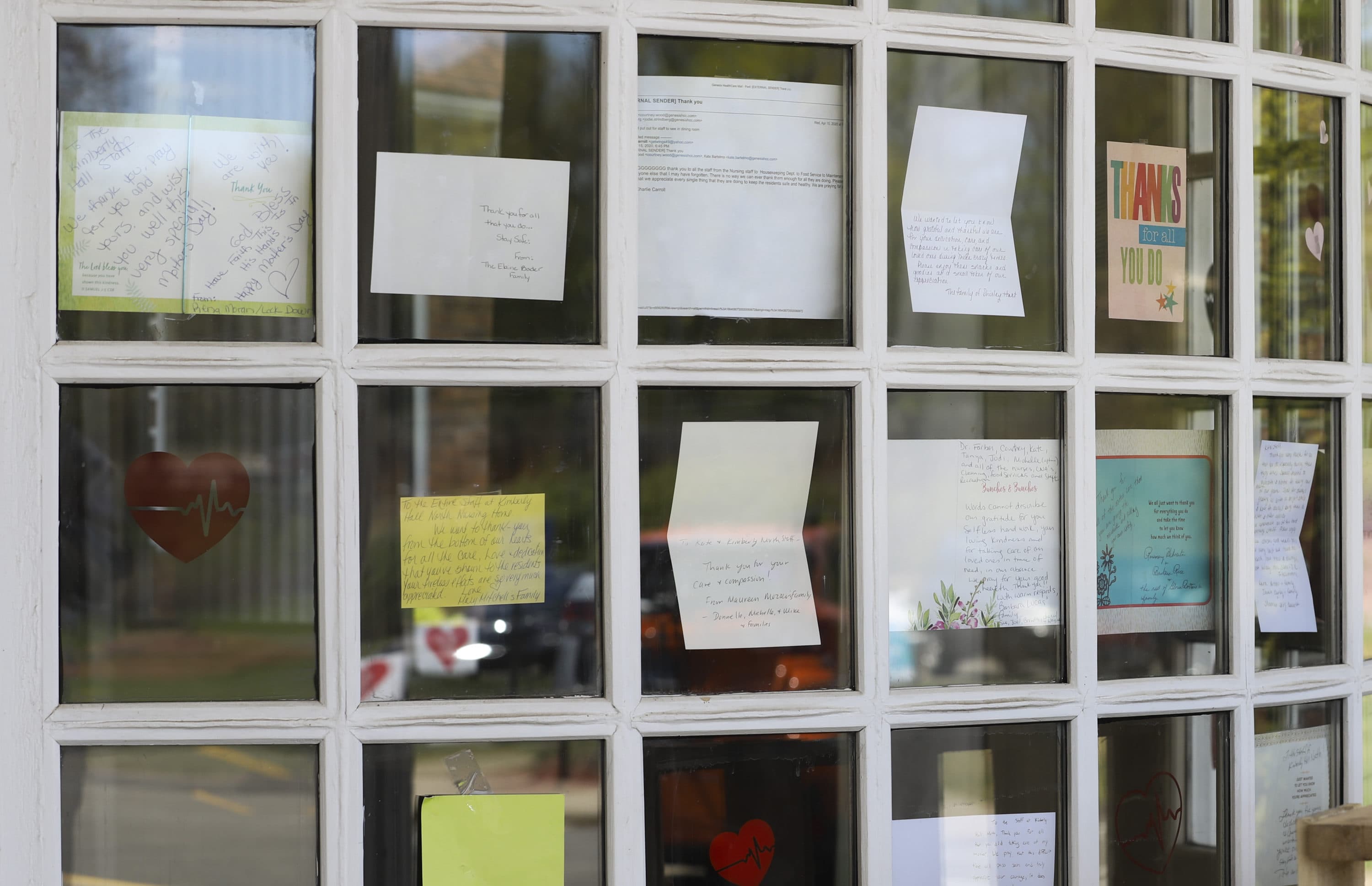Advertisement
BU Prof: Nursing Home COVID Deaths Point To Discrimination Against People With Disabilities
Resume
It's been 30 years since the landmark Americans With Disabilities Act banned discrimination against people with disabling physical or mental health conditions.
Similar to the Civil Rights Act of 1964, the law prohibits discrimination in employment and mandates access in public accommodations.
But some people are questioning just how much the ADA is being honored when it comes to the impact of the coronavirus pandemic.
WBUR's Jack Lepiarz spoke with George Annas, professor of health law, ethics and human rights at Boston University, about whether, in the face of COVID-19, the law is working.
Interview Highlights:
"I think that even though it's the 30th anniversary, I think people still don't know much about it. And certainly I've been very discouraged by some of the reports we've had from around the country that hospitals are setting up these special committees to decide who gets the next ventilator, or who gets the next the ICU bed, when they're under a crunch. ... We have one going on in Texas right now ... a hospital at the border is saying that they're so full they have to send people home to die. And the people they're sending home to die are mostly people who are living in assisted living or long-term care facilities, or even by themselves, but have major disability. In a major emergency, the country has a history of turning to utilitarianism — the greatest good for the greatest number — and that puts people with disabilities at risk. ... We just don't treat people with disabilities equally to everyone else.
It's a scandal of major proportions that the vast majority of people who've died from COVID in the United States are in long-term care facilities. I mean, you can the plot people who we discriminate against by the number of deaths. And so the highest number of deaths come from elderly people — institutionalized people, the second-highest from minorities — people of color. That's not accidental. That's based on the way we've run our health care system for decades."
On whether any of this qualifies as unlawful discrimination under the ADA
"It depends what the rationale was. Certainly not putting someone on a ventilator just because of their age is unlawful discrimination. So [with] most people — [the] hospital probably wouldn't do that. They'd say, 'Oh, no, no. It's their underlying condition. We think that the chances of them benefiting from this ventilator are much less than the chances of a teenager or a younger person benefiting from it. So we're not doing it because of their disability or because of their age, we're doing it because of their medical condition.' But the truth of the matter is, even if it was unlawful discrimination, the chances of anybody bringing a lawsuit are so low that probably people don't worry about that."
On the chances of any legal claims related to ADA and the coronavirus
"Remarkably, you don't hear of any lawsuits. Of course, we're right in the middle of the pandemic. Everything's an emergency right now. We are hearing some pronouncements from the Justice Department — the people who are in charge of enforcing the ADA — and I would think that's the most likely place that [hospitals will] get pushback ... not from individual lawsuits. People who want to bring individual lawsuits are much more interested in getting treatment and getting care than they are in bringing a lawsuit."
This segment aired on July 27, 2020.

